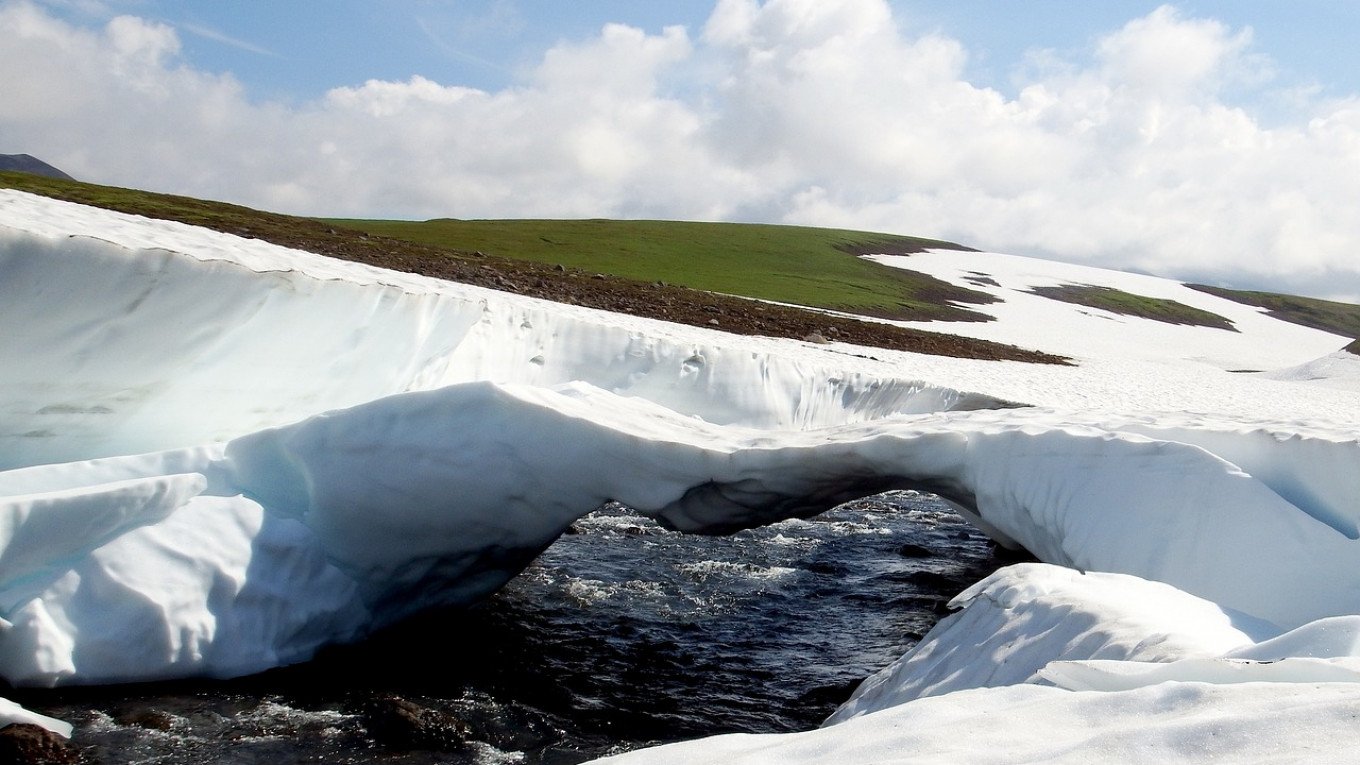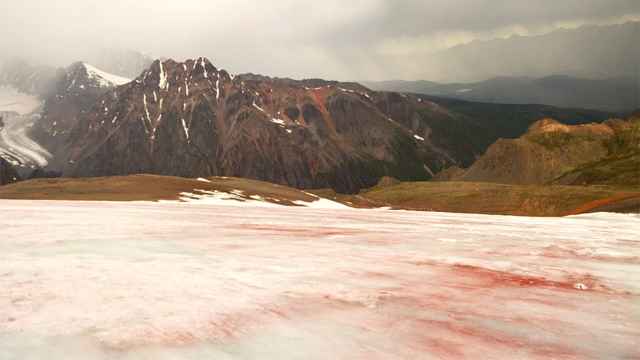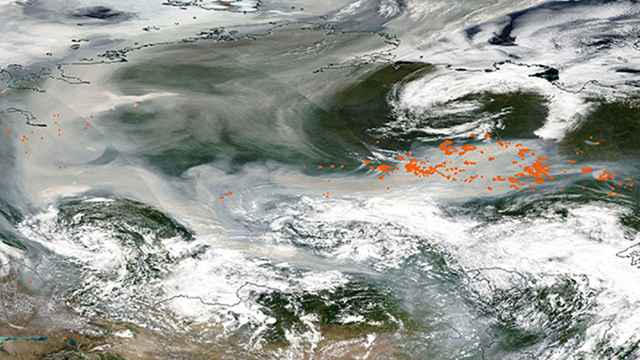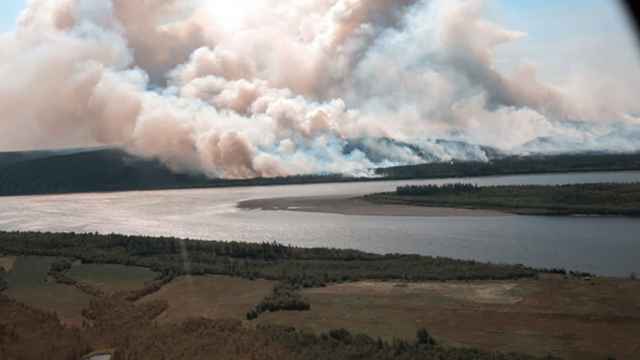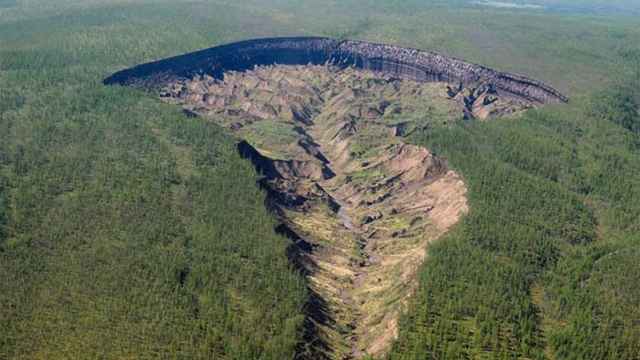Russia’s permafrost is expected to thaw at an accelerating rate between now and 2100, a process that could trigger a “feedback loop” of carbon emissions, according to a new report published by the Intergovernmental Panel on Climate Change (IPCC).
More than 50% of Russia’s territory is located in the planet’s frozen cryosphere. The country is the world’s fourth-largest emitter of greenhouse gases and was the biggest emitter not to have agreed to the 2015 Paris climate accords.
The IPCC report predicts that 70% of surface-level permafrost could thaw by 2100 if greenhouse gas emissions continue to rise, shifting the world’s “permafrost border” increasingly northward.
“Arctic and boreal permafrost hold large amounts of organic carbon, almost twice the carbon in the atmosphere, and have the potential to significantly increase the concentration of greenhouse gases in the atmosphere if they thaw,” the report says.
Even if global warming is limited to well below 2°C warmer than pre-industrial levels, around 25% of the near-surface permafrost will thaw, the report added.
According to the report, 4 million people living in the earth's Arctic regions directly depend on the cryosphere. Some residents of Russia’s Arctic regions have already adapted their traveling and hunting activities to the safety of land and ice conditions, the report says, with some planning for relocation.
Permafrost will thaw fastest in Siberian cities such as Vorkuta, Chita, Ulan-Ude and Petropavlovsk-Kamchatsky, said Alexei Yekaikin, a scientist from the Arctic and Antarctic Research Institute and one of the IPCC report’s authors.
“By the end of the 21st century, permafrost borders will move further north and will reach Yakutsk, Magadan and Igarka,” the expert told the state-run RIA Novosti news agency Wednesday.
A Message from The Moscow Times:
Dear readers,
We are facing unprecedented challenges. Russia's Prosecutor General's Office has designated The Moscow Times as an "undesirable" organization, criminalizing our work and putting our staff at risk of prosecution. This follows our earlier unjust labeling as a "foreign agent."
These actions are direct attempts to silence independent journalism in Russia. The authorities claim our work "discredits the decisions of the Russian leadership." We see things differently: we strive to provide accurate, unbiased reporting on Russia.
We, the journalists of The Moscow Times, refuse to be silenced. But to continue our work, we need your help.
Your support, no matter how small, makes a world of difference. If you can, please support us monthly starting from just $2. It's quick to set up, and every contribution makes a significant impact.
By supporting The Moscow Times, you're defending open, independent journalism in the face of repression. Thank you for standing with us.
Remind me later.


